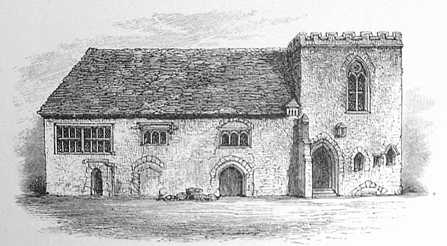Outsiders: Jewish
In 1290, under Edward I, the Jews in England were deported en masse to France --which they were forced to flee less than twenty years later. Not until Cromwell's Commonwealth (1656) were Jews allowed to establish communities in England*.
There was a sensational case just before Shakespeare wrote The Merchant of Venice. In 1593 Dr. Rodrigo Lopez, a converted Jew and physician to Queen Elizabeth, was condemned to death for conspiracy against her life. He died protesting his innocence, but the trial publicised all the old accusations against the Jewish people. Neither Queen Elizabeth nor Robert Cecil, Secretary of the Privy Council, believed that Lopez was guilty.
Marlowe cashed in on the publicity in The Jew of Malta, but even his machiavellian protagonist is shown to have been treated despicably by the Christans in Malta--much as Shakespeare's Shylock has been spurned by Antonio.
Shakespeare's Shylock
Although there was a small group of Portugese Jews in London, none of them is known to have been a moneylender*; thus Shakespeare's model for Shylock was more likely to have been literary: Marlowe's Barrabas, and such figures as the medieval Judas of the Mystery plays.
The basic plot of The Merchant of Venice is unquestionably anti-Semitic: "villainous, greedy Jew manipulates innocent merchant." But Shylock becomes far more interesting than a stock villain. He is given motivation, both in the way the Christians have treated him, and in the elopement of his daughter-- just when he was bid to supper to get him out of the way. And he is given one of the greatest statements of the common humanity of all races in his speech "If you prick us, do we not bleed?" (3.1.61--compare Morocco in the same play.)
Footnotes
-
Jewish communities
Amsterdam and Venice, both centres of commerce, allowed flourishing communities of professing Jews. Elsewhere they had to preserve at least the appearance of conversion to Christianity to avoid persecution and deportation; there was a small group of Portugese Jews in London, but they were obliged to practice their religion in secret, officially attending Christian churches.
-
Usury
The moral politics of moneylending were complex. For centuries, "usury"-- lending money and charging interest-- had been forbidden as contrary to the Law of God. But the increasing demands of capitalism made the policy unworkable. Henry VIII passed a law allowing interest rates of up to 10%, but it was repealed by his son, Edward VI, who outlawed usury again.
The result was hardship, and a black market of far higher rates. Under Elizabeth a complicated law was passed, instituting heavy penalties for those who charged more than 10% interest. While it allowed charges of less than 10%, those borrowing could not be forced legally to pay the interest--just the principal.
The Bible on usury
The Old Testament gives mixed messages about usury (see, for example, Exodus 22:25, Deuteronomy 23:20-1, Leviticus 25:35-6); one was not to require interest of one's brother, but others might perhaps be charged. The New Testament (Luke 6:35 reads: "But love ye your enemies, and do good, and lend, hoping for nothing again."
